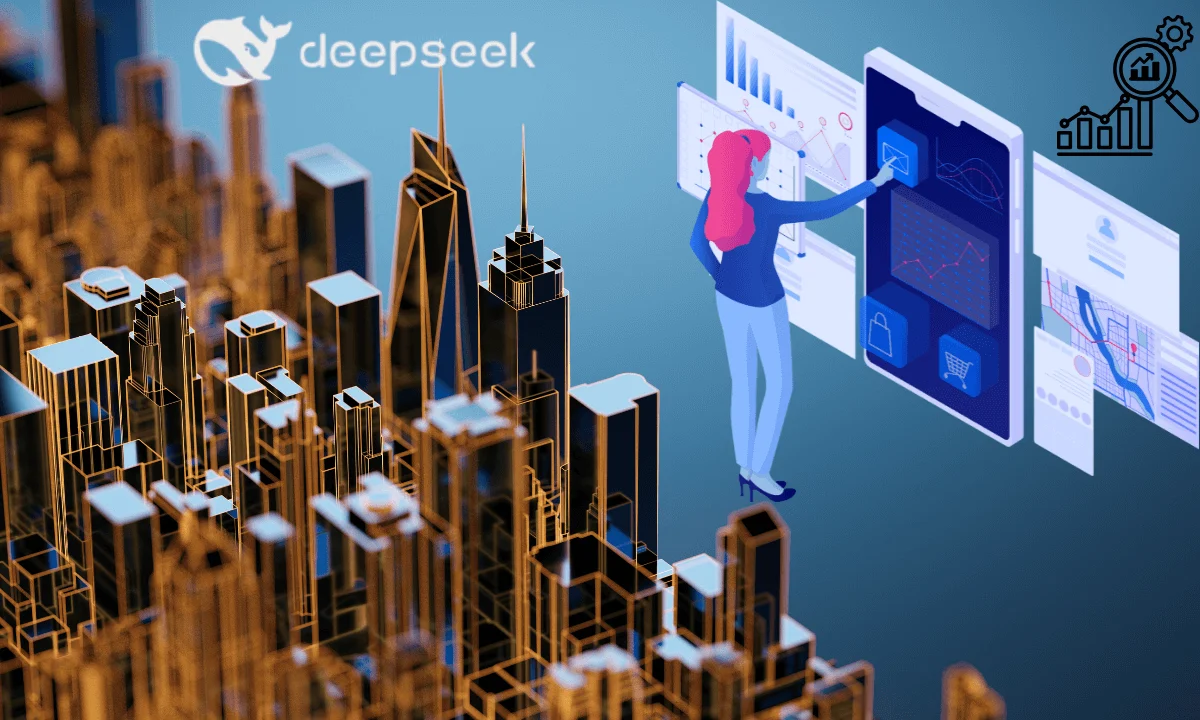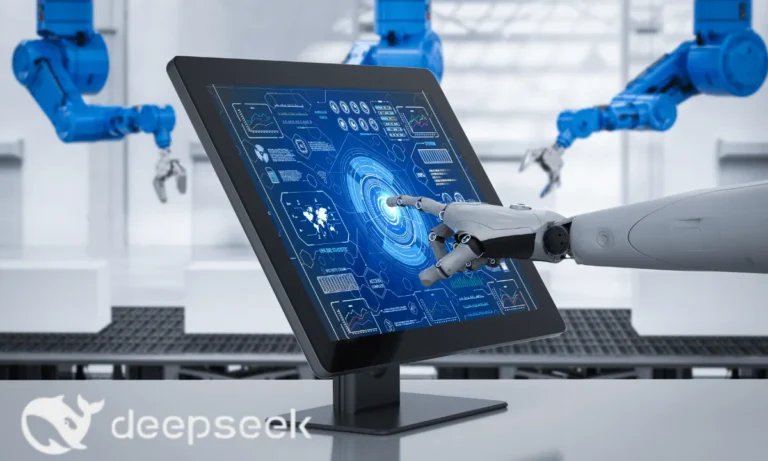AI in 2030: What Pakistan’s Tech Landscape Will Look Like
AI in 2030: Artificial Intelligence (AI) is no longer a futuristic concept; it is today’s reality and tomorrow’s game-changer. As we approach 2030, Pakistan’s tech landscape stands on the brink of transformation. Startups, educational institutions, and government agencies have begun investing in AI, setting the stage for a technological revolution. By 2030, AI will redefine how Pakistan works, learns, and grows. This article explores how AI will shape Pakistan’s technology ecosystem in the next five years.
Breaking Barriers: Women in Tech Using DeepSeek AI to Innovate
AI Will Drive Economic Growth
By 2030, AI will play a central role in Pakistan’s economy. Businesses will integrate AI into daily operations to optimize processes, reduce costs, and improve productivity. Local startups will leverage AI to create innovative products, while established enterprises will adopt AI-driven tools to compete in the global market.
Sectors such as agriculture, finance, healthcare, and manufacturing will reap the most benefits. In agriculture, AI-powered drones and data analytics will help farmers boost crop yields and reduce losses. In finance, banks will use AI for fraud detection, credit scoring, and customer service. These applications will not only save time but also improve accuracy.
How to Use AI for SEO: Boosting Your Pakistani Website’s Ranking
Startups Will Lead the AI Revolution
Pakistan’s startup ecosystem is growing rapidly, and AI will give it a further boost. By 2030, AI-driven startups will dominate the market. These startups will solve local problems using global tech solutions. Entrepreneurs will build applications in Urdu and regional languages to reach broader audiences.
Incubators and accelerators will support AI-based ventures, and venture capital firms will invest heavily in them. Young tech professionals will choose AI as a career path, fueling innovation and growth. With the right mentorship and funding, Pakistani startups will create AI products that will serve both local and international clients.
AI for Social Good: DeepSeek’s Projects in Rural Pakistan
Education System Will Produce AI Talent
To sustain AI growth, Pakistan will need a skilled workforce. By 2030, universities and technical institutes will revise their curricula to include AI, machine learning, and data science as core subjects. Educational institutions will offer specialized degrees and certifications in AI. Online platforms will provide flexible learning options, allowing students to gain AI skills at their own pace.
Coding bootcamps and hackathons will become more common, giving students real-world experience. Government programs will support STEM education and encourage AI research. As a result, Pakistan will produce thousands of AI professionals ready to lead in various industries.
Pakistani Farmers Share How AI Boosted Their Profits by 40%
AI Will Improve Public Services
The government will also play a key role in AI adoption. By 2030, public service departments will use AI to streamline operations and improve citizen experiences. AI chatbots will handle inquiries at passport offices, driving license centers, and utility departments. These solutions will reduce wait times and eliminate bureaucracy.
AI will also enhance decision-making in urban planning, disaster response, and traffic management. Smart cities will emerge, equipped with sensors and AI-powered systems to monitor pollution, energy usage, and public safety. Citizens will enjoy better living standards and access to efficient services.
DeepSeek AI in Action: Optimizing Karachi’s Traffic Management
Healthcare Will Witness a Digital Transformation
AI will revolutionize healthcare in Pakistan. By 2030, hospitals and clinics will adopt AI tools for diagnosis, treatment planning, and patient monitoring. AI will assist doctors in detecting diseases at an early stage using imaging and predictive analysis. Medical data will be digitized and analyzed to improve treatment outcomes.
Telemedicine will become mainstream, especially in rural areas. AI-driven health apps will guide patients through self-diagnosis, appointment booking, and prescription management. These changes will make healthcare more affordable, accurate, and accessible to all.
AI for Content Creation: Write Blogs 10x Faster (Free Tools Included)
AI Will Strengthen National Security
Pakistan’s defense and security sectors will also benefit from AI. By 2030, the country will deploy AI in surveillance, threat detection, and cyber defense. Security agencies will use facial recognition and pattern detection systems to prevent crimes and terrorism.
AI will also improve border control and military decision-making. The defense sector will invest in autonomous systems and robotics. With these advancements, Pakistan will protect its sovereignty more effectively and efficiently.
Success Story: AI-Driven Marketing Campaigns for Pakistani SMEs
E-commerce and Retail Will Embrace AI
E-commerce in Pakistan is booming, and AI will take it to new heights by 2030. Online platforms will use AI to personalize shopping experiences, predict consumer behavior, and manage inventory. Chatbots will handle customer service, while recommendation engines will suggest products based on user preferences.
Retailers will use AI for dynamic pricing, demand forecasting, and supply chain optimization. These technologies will increase customer satisfaction and improve business profitability. Pakistan’s retail sector will become smarter, faster, and more responsive.
How DeepSeek AI Helped Reduce Energy Waste in Islamabad Offices
Challenges and the Road Ahead
Despite the bright outlook, Pakistan will face challenges in its AI journey. Data privacy, ethical AI use, and lack of infrastructure may slow progress. To overcome these issues, policymakers must create AI regulations and frameworks. The government should encourage open data initiatives while ensuring data security.
Public-private partnerships will play a crucial role in building AI infrastructure. Investments in cloud computing, high-speed internet, and data centers will support AI adoption. Continuous learning and upskilling programs will help professionals stay relevant in a changing job market.
Creating a Chatbot for Your Pakistani Website Using DeepSeek AI
International Collaboration Will Fuel Progress
Pakistan will not grow in isolation. By 2030, international partnerships will drive AI development in the country. Pakistani universities will collaborate with global institutions on AI research. Tech companies will open regional offices and train local teams.
Cross-border innovation will accelerate progress in health, education, and environment. Pakistan will position itself as a regional hub for AI talent and innovation. These partnerships will ensure that Pakistan stays on par with global AI trends.
From Idea to Impact: Pakistani Entrepreneurs Winning with AI
Conclusion: A Future Powered by AI
The future of Pakistan’s tech landscape looks promising. By 2030, AI will transform every sector, from agriculture to aerospace. It will create new opportunities, boost economic growth, and solve real-world problems. Pakistani talent will drive this change with energy, creativity, and resilience.
To unlock this potential, stakeholders must act today. Educational institutions must prepare students for AI careers. Businesses must invest in AI tools and training. The government must build infrastructure and provide regulatory support.
AI is not just a tool; it is a vision for a better future. With a clear roadmap and collective effort, Pakistan can harness AI to lead in innovation and progress.
How DeepSeek AI Helped Reduce Energy Waste in Islamabad Offices







